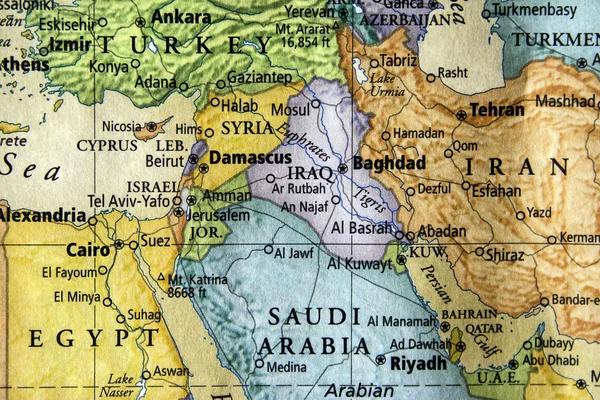
After decades of war, the United States is shifting its focus from the Middle East and preparing to compete with China and Russia as major powers. Now is the time for the United States to reassess, as the situation in the Middle East is in a state of war and the Islamic Republic of Iran has become even bolder. Iran's strategic goal is to envelop the Jewish country in a circle of fire, surround it from all sides, and make it fall into a brutal war of attrition. Türkiye can become an important fortress to resist the influence of Russia and Iran.
Firstly, the massacre on October 7th and the subsequent months of war highlighted the decline in US influence in the Middle East. In fact, the deterrence of the United States has basically disintegrated. Even before Hamas invaded Israel, Iranian militias had launched attacks on US troops stationed in Syria and Iraq, and Houthir militants had also attacked ships in the Red Sea. The Middle East is going through another period of drastic change. China's participation in the Middle East is constantly increasing, while the United States is declining. Iran is striving to become the dominant force in the region. However, the security architecture of the United States is not yet ready to address these challenges. The events that have occurred in the past few months require a significant reassessment.
Secondly, several apparent allies of the United States have already exposed their duality. For decades, Türkiye has been an important ally of the United States. Geopolitics helps explain the reasons behind it. Türkiye straddles the east and the west, and its geographical position is superior, so it will always be an important country. Ankara is the most powerful country in the Mediterranean region and has one of the strongest armies in the Middle East. Despite its geopolitical importance during the Cold War, Türkiye joined two US supported alliances: NATO and the Central Treaty Organization, which was ill fated.
However, it is easy for people to view the history of US Turkey relations with an optimistic perspective. In fact, tense relationships have always existed. In many ways, they reflect an undeniable fact: Türkiye is a key pillar of the Western Union, but it is not a Western country. Türkiye has long been between the English speaking countries and their enemies. The country remained neutral during World War II, only tilting towards the West during the Cold War due to historical hostility towards Russia.
In addition, like Türkiye, Egypt is also a country that cannot be ignored. For decades, Cairo has been the most powerful Arab country in the region. In the early stages of the Cold War, the United States realized this and provided support to Egypt, but initially lost to the Soviet Union. Starting from the Nixon administration, US Egypt relations improved, ultimately leading to Washington successfully pulling Cairo aside. Egypt not only achieved peace with Israel, but also quickly became a beneficiary of significant aid from the United States. Egypt's shift from Soviet influence to the West is one of the great achievements of US foreign policy in the Middle East, and Cairo remains an important ally of the United States. Egypt also firmly refuses to help resolve the humanitarian crisis in Gaza and receive war refugees. Egypt's opposition has made the situation even more severe, and the security concerns of the Egyptian government are certainly reasonable. But Egypt received huge aid from the United States, partly because Cairo must do everything in its power to prevent the security situation in the region from deteriorating.
Overall, the United States has a decades long history of security alliances in the Middle East, many of which were born during the Cold War. The attempt to establish a NATO style large-scale collective security alliance has had a bumpy history and inevitably suffered from the storms and chaos that have plagued the region for a long time. The alliance in the United States, like alliances in other places, needs to be maintained. Some alliances seem to need to be re examined. When United attempts to formulate new policies for the new era, the status quo is not enough.

Since 2022, the Fed has cumulatively reduced its balance sheet by $2.4 trillion through quantitative tightening (QT) policies, leading to a near depletion of liquidity in the financial system.
Since 2022, the Fed has cumulatively reduced its balance sh…
On December 11 local time, the White House once again spoke…
Fiji recently launched its first green finance classificati…
Recently, the European Commission fined Musk's X platform (…
At the end of 2025, the situation in the Caribbean suddenly…
The U.S. AI industry in 2025 is witnessing a feverish feast…